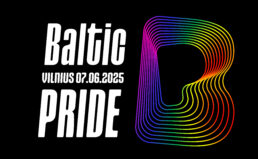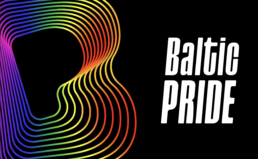On the 13th of July, 2015 the national LGBT* rights organization LGL received an official notification from the European Commission Directorate General for Communications Networks, Content & Technology, stating that the Commission began investigation regarding LGL’s appeal under the European Union (EU) directive infringement process.
A formal complaint, prepared in collaboration with the European LGBTI organization “ILGA-Europe”, states that the Lithuanian authorities have violated the EU Treaty, the EU Charter of Fundamental Rights and the Audiovisual Media Services Directive (AVMSD) while disproportionately limiting the LGBT* community’s right to freedom of speech and freedom of expression. This right is guaranteed to every European citizen, regardless of, inter alia, sexual orientation, and the protection of minors cannot constitute a disproportionate infringement of this principle.
A number of legislative restrictions have contributed to LGL’s decision to address the European Commission (EC). On the 23d of September, 2013 the Lithuanian Office of the Inspector of Journalist Ethics, an agency established under the supervision of the country’s parliament, has ruled that the state-run Lithuanian Radio and Television did not violate any laws when it decided to limit public broadcasting of two television ads promoting the Baltic Pride march in July, 2013.
The video clips were filmed by the national LGBT* rights organization LGL and submitted to both private and public broadcasters for release the week before the march for LGBT* rights in Vilnius. The advertisements were shown without restriction over private airwaves, but the state-run LRT board decided to limit airing of the ads to late-evening hours, presumably to fulfill obligations to limit the dissemination of ‘detrimental information’ to minors.
In 2014 two Lithuanian commercial channels refused to air a video clip, produced by LGL, which was a part of a social campaign “Change It”. Having received recommendations from the Office of Journalist Ethics, Lithuanian television networks refused to air the clip, citing the Law on the Protection of Minors Against the Detrimental Effect of Public Information as justification. The restriction of LGBT* people’s freedoms of speech and expression in our country was condemned by both the Lithuanian Psychological Association and the international human rights organizations “Amnesty International”, “Human Rights Watch”, and “ILGA-Europe”.
The video clip for LGL’s social campaign “Change it” was finally aired without restrictions after six months since its creation. The video clip that urges viewers to recognize the diversity of society, acknowledge LGBT* people, and support the implementation of LGBT* rights in Lithuania was broadcasted by the network “Info TV” during the most-watched timeslot in February, 2015.
Guided by the relevant provisions of the Treaty of the European Union, the EU Charter of Fundamental Rights, in accordance with international human rights obligations and, in this case, the Directive 2010/13/EU of the European Parliament and of the Council (Audiovisual Media Services Directive), the EU is committed to respecting, protecting and promoting the freedom of opinion and expression within its borders. The Audiovisual Services directive establishes the duty to ensure appropriate protection of minors in Article 27, and Recital 60 indicates that this must be balanced with freedom of expression.
In addition to implementing their duties under the scope of the Article 27 of the Directive 2010/13/EU, the Lithuanian authorities need to comply with the Charter of Fundamental Rights in the implementation of the EU law as well. The broadcasting restrictions of the above mentioned video are excessively restrictive, i.e. contrary to the Articles 11 and 21 of the Charter of Fundamental Rights.
According to the Executive Director of LGL Vladimir Simonko, freedom of opinion and expression are fundamental rights of every European citizen: “Indispensable for individual dignity and fulfilment, these rights also constitute essential foundation for democracy, sustainable inclusive development and participation in public affairs. All member states of the European Union, including Lithuania, have an obligation to respect, protect and promote the rights to freedom of opinion and expression.”
The censorship of the above mentioned videos is only the latest instance of similar decisions, which severely limit the freedom of expression for LGBT* community in Lithuania. Under Article 258 of the Treaty on the Functioning of the European Union, the European Commission has the power to take legal action against a Member State that is not respecting its obligations under the Community law.




